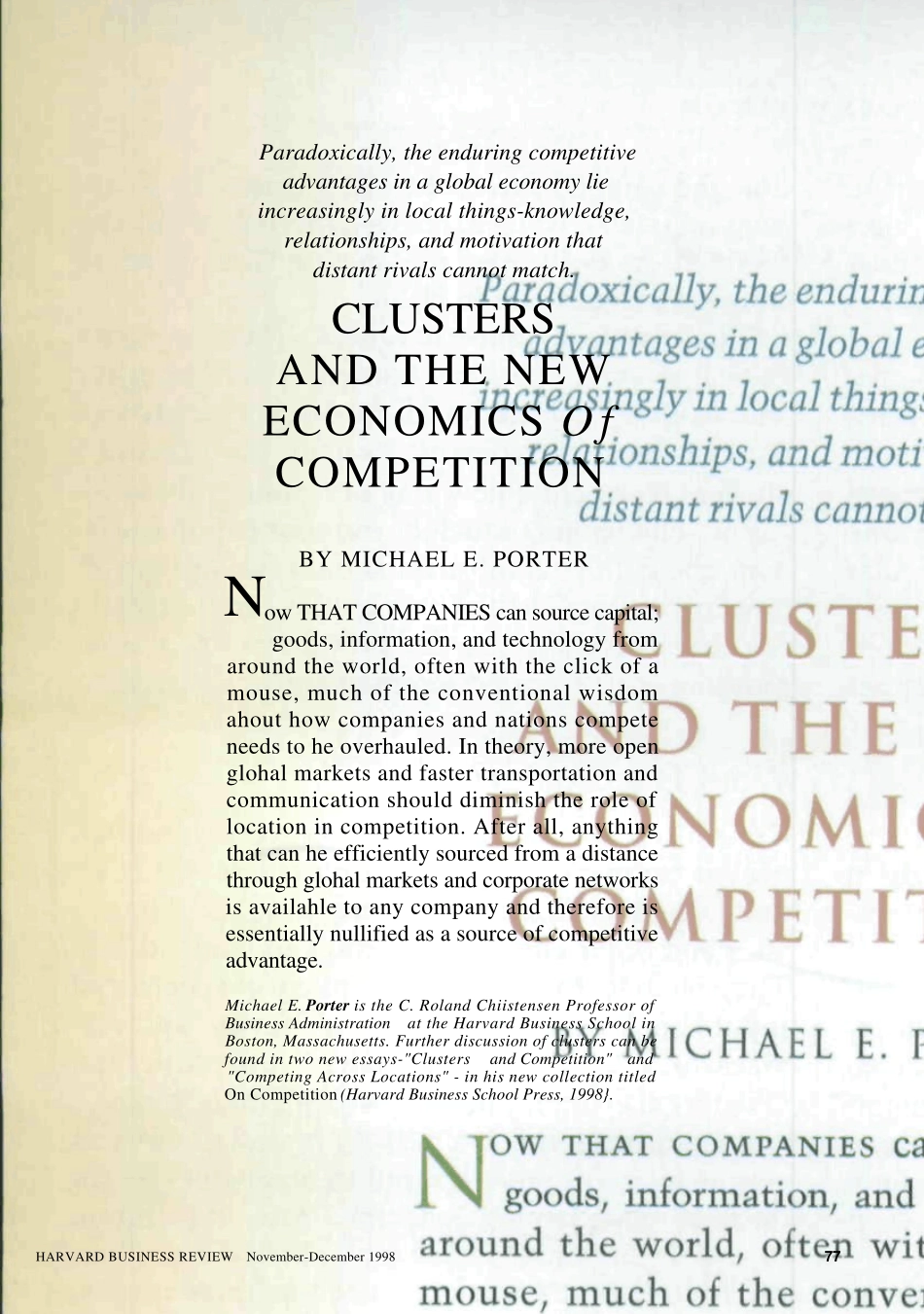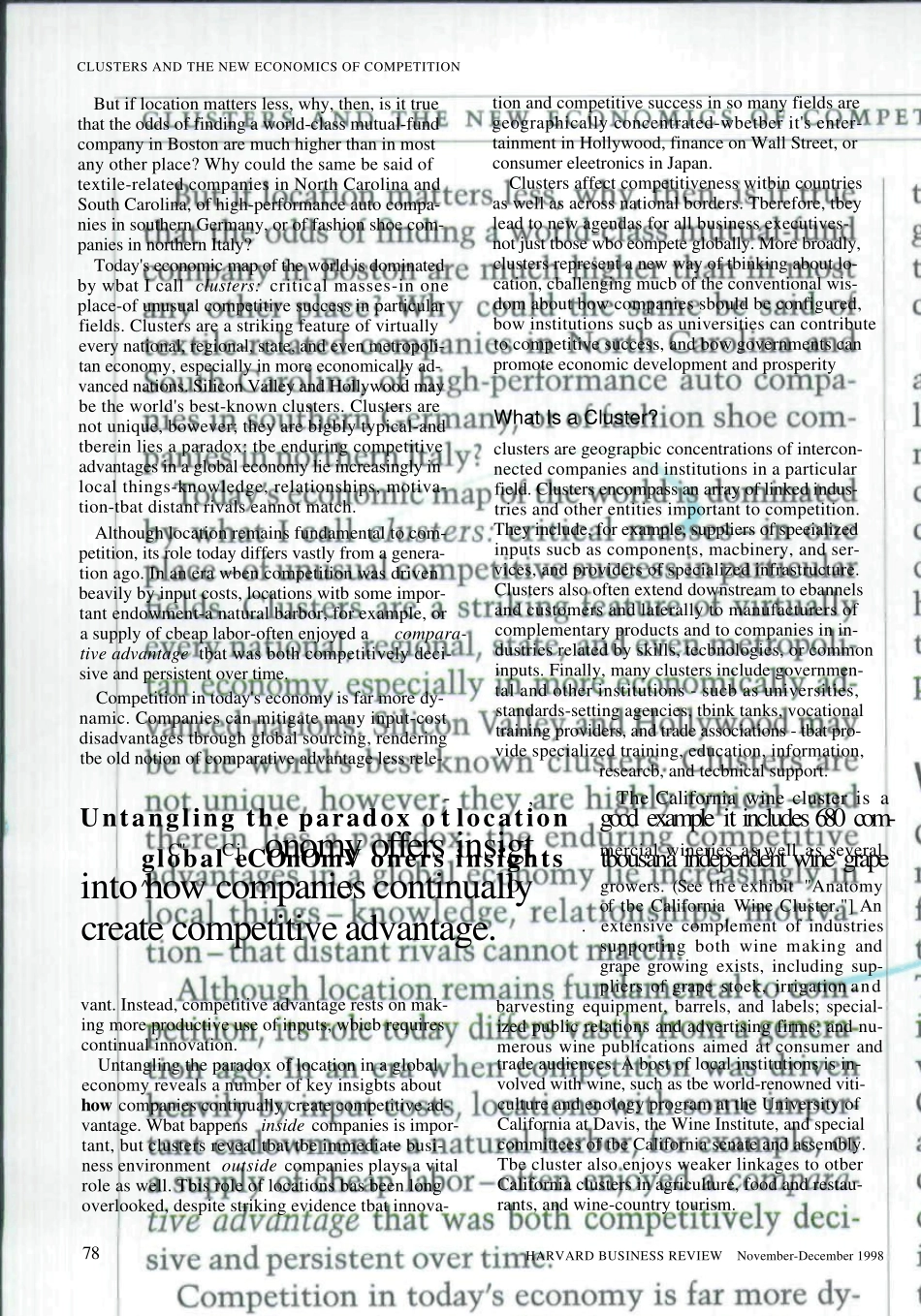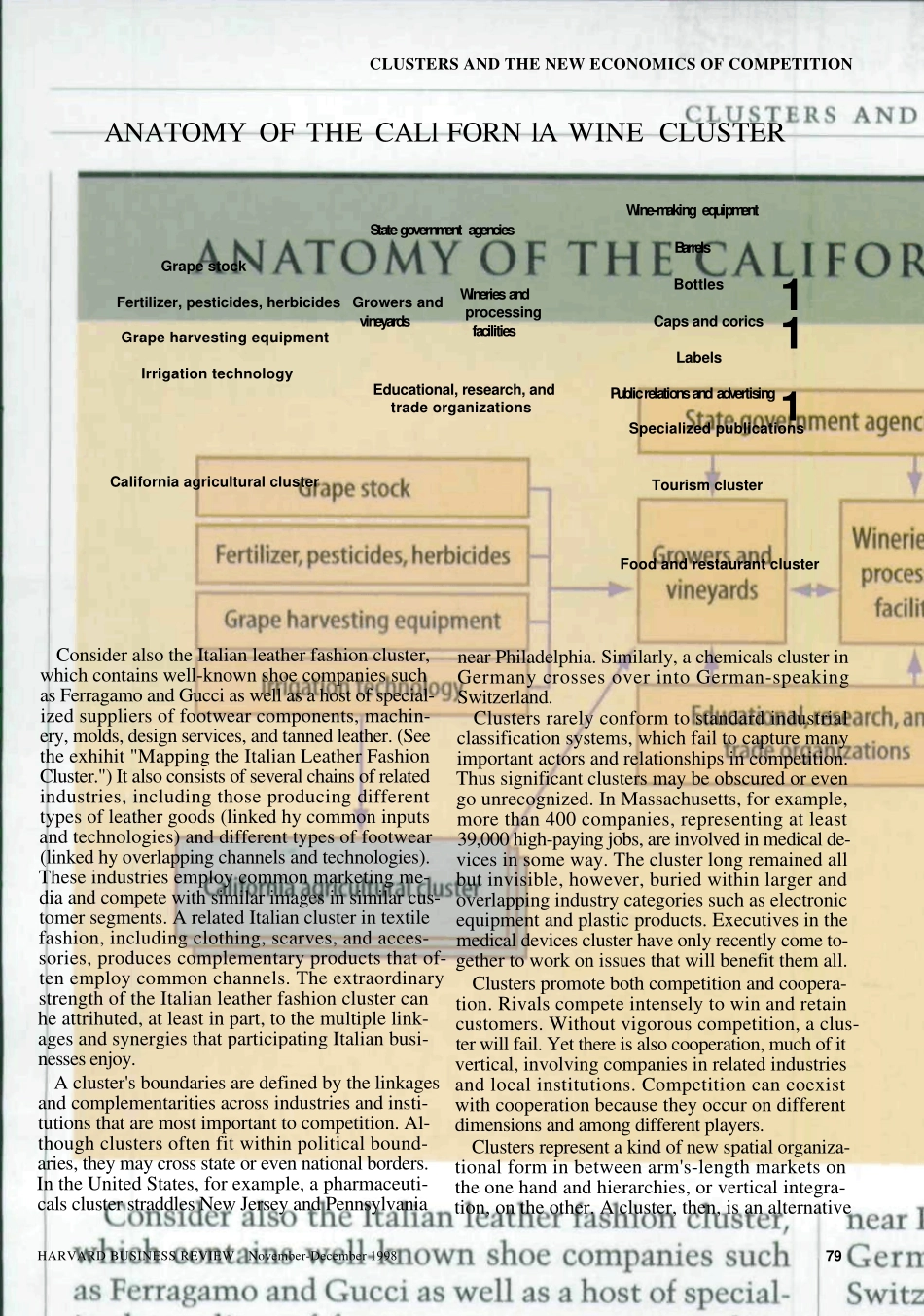Paradoxically, the enduring competitiveadvantages in a global economy lieincreasingly in local things-knowledge,relationships, and motivation thatdistant rivals cannot match.CLUSTERSAND THE NEWECONOMICS O fCOMPETITIONBY MICHAEL E. PORTERNow THAT COMPANIES can source capital;goods, information, and technology fromaround the world, often with the click of amouse, much of the conventional wisdomahout how companies and nations competeneeds to he overhauled. In theory, more openglohal markets and faster transportation andcommunication should diminish the role oflocation in competition. After all, anythingthat can he efficiently sourced from a distancethrough glohal markets and corporate networksis availahle to any company and therefore isessentially nullified as a source of competitiveadvantage.Michael E. Porter is the C. Roland Chiistensen Professor ofBusiness Administration at the Harvard Business School inBoston, Massachusetts. Further discussion of clusters can befound in two new essays-"Clusters and Competition" and"Competing Across Locations" - in his new collection titledOn Competition (Harvard Business School Press, 1998}.HARVARD BUSINESS REVIEW November-December 199877CLUSTERS AND THE NEW ECONOMICS OF COMPETITIONBut if location matters less, why, then, is it truethat the odds of finding a world-class mutual-fundcompany in Boston are much higher than in mostany other place? Why could the same be said oftextile-related companies in North Carolina andSouth Carolina, of high-performance auto compa-nies in southern Germany, or of fashion shoe com-panies in northern Italy?Today's economic map of the world is dominatedby wbat I call clusters: critical masses-in oneplace-of unusual competitive success in particularfields. Clusters are a strik...


